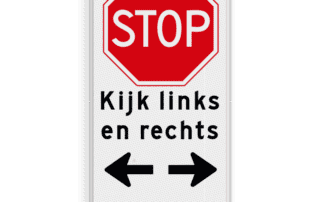Franchisee successfully appeals for error as a result of a forecast provided by the franchisor
Court of Utrecht
The District Court of Utrecht recently rendered an interim judgment in a prognosis case (in which the franchisor had provided the franchisee with a financial estimate for the coming years that turned out to be incorrect), which mainly concerned a consultancy firm that had been engaged by the franchisor to conducting location research into a new ‘Read Shop’ to be opened in Smilde. Partly on the basis of the location survey, a (potential) franchisee has decided to contract with the franchisor.
In retrospect, it turned out that the consultancy firm’s report contained errors or omissions, as a result of which the outcome of the location survey was not sound. The operating forecast, which was based on this study, would therefore also be unsound. If the franchisee had known this, he would not have concluded the franchise agreement with the franchisor, or would not have concluded it under the same conditions.
Although the franchisor invokes an expiry period of three months in which to act against incorrect information on the part of the franchisor, such as the location investigation and the prognosis, this defense is overruled by the court.
The court accepts that the franchisee could have erred about the incorrect location research and the incorrect operating forecast, but the court still wants to see in more detail what the operating result could have been if the consultancy had done its job properly. This – of course – to demonstrate causality.
Remarkably enough, the court states that the franchisor is not automatically liable for the errors of the consultancy, because the franchisor did not have to doubt the correctness of the investigation. Because the franchisor therefore did not know about the errors, it would not be liable for those errors in the view of the court. While it is arguable that no fault can be attributed to the franchisor because the franchisor was not aware of the errors, it could be argued that the franchisor’s attribution in such cases could also exist on the basis of prevailing views. After all, the franchisor can be considered to have full knowledge of the franchise formula and the potential franchisee may therefore rely on statements made by the franchisor or the consultancy firms it has engaged. Were this to be otherwise, the franchisor, by engaging a consultancy, could quite easily escape the scene of errors in the reporting and the franchisee could (apparently) only sue the consultancy on the basis of a tort. That does not seem reasonable, given the position of the franchisee.
Mr JH Kolenbrander – Franchise attorney
Ludwig & Van Dam Franchise attorneys, franchise legal advice Would you like to respond? Mail to info@ludwigvandam.nl

Other messages
Albert Heijn has to divest 5 Jan Linders stores
Jan Linders becomes an Albert Heijn franchisee and will therefore ...
Agreed early termination of the franchise agreement
A franchise agreement is usually concluded for a specific period ...
No obligation to use a rental property as a supermarket
The Arnhem-Leeuwarden Court of Appeal has made a decision on ...
Rent indexation unrealistically high
Does an agreed rent indexation always apply? The District Court ...
Clarity pays off
Clarity pays off Many agreements sometimes use vague definitions ...
Continued activities of the franchisee do not violate a non-competition clause
A judgment was recently rendered in preliminary relief proceedings in ...







